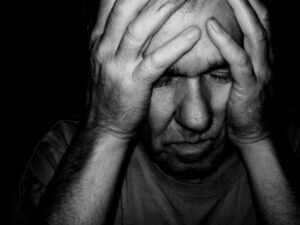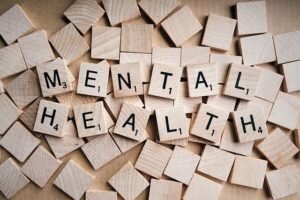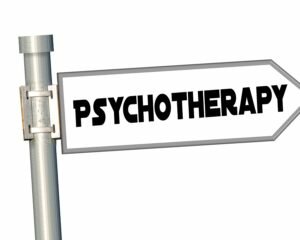Helpful Tips For Mental Health In Times Of The Corona Virus
The coronavirus crisis is changing the everyday life, behavior and perspective of many people. Mental Health has put together tips on how people can support their mental health now.
The coronavirus primarily affects the body – but those who constantly follow the news, are required to minimize social contacts or even go into quarantine at home, can also get on their minds. Below are 8 tips from Mental Health on how to take care of your mental health now.
Get information from trustworthy sources. Limit yourself to only getting information from sources such as the World Health Organization (WHO), the Commission, or reliable national organizations.
 Set yourself a limit on COVID-19 news; try to avoid excessive media use. Constantly waiting for news and constantly reloading the social media feed can add to worry. Think about switching off notifications on your mobile phone and taking a deliberate “message break”. Setting a limit on reading, listening to, and watching the news allows you to focus instead on everyday life and those areas of life that you can influence yourself. In this way you avoid mind games like “what if …”. WHO recommends that information (only factual) be used primarily when it comes to practical steps to prepare for and protect yourself and others.
Set yourself a limit on COVID-19 news; try to avoid excessive media use. Constantly waiting for news and constantly reloading the social media feed can add to worry. Think about switching off notifications on your mobile phone and taking a deliberate “message break”. Setting a limit on reading, listening to, and watching the news allows you to focus instead on everyday life and those areas of life that you can influence yourself. In this way you avoid mind games like “what if …”. WHO recommends that information (only factual) be used primarily when it comes to practical steps to prepare for and protect yourself and others.
Take care of yourself! In times of the corona virus, self-care means concentrating on what you have in your own hands and can control (e.g. appropriate hygiene) instead of what you cannot influence (e.g. stopping the virus). Live your everyday life and your routines wherever possible: eat healthy, get enough sleep, do things that you enjoy. Consider developing a new daily routine that focuses on your mental health and positive attitudes. Activities like walking, meditation, or fitness can help you relax and will have a positive effect on your thoughts and feelings. The Mental Health Foundation recommends, for example, to see opportunities in the situation – e.g. that you finally get enough sleep.
Keep in touch and support the people around you. Keeping in touch with family and friends can reduce stress. Talking to them about worries and feelings may help you better deal with the challenges of the crisis. Whoever receives support and care gives them a feeling of security. Helping others in need and making contact with someone who may feel alone or concerned helps both the person being supported and the supporter. Many people also wonder what they would do in the case of quarantine. While the idea of self-quarantine may seem daunting, keep in mind that it is only a temporary measure and that there are many digital ways to get in touch with others on a regular basis.

Stay hopeful and think positively. Try to focus on the positive things in life. The WHO recommends looking specifically for sources of information that spread positive news from people in the region who have contracted COVID-19 and have recovered. Or stories of people who have accompanied a loved one in the recovery process and are ready to share their experiences.
Acknowledge your feelings. It is quite normal to have large emotional reactions in the current situation, whether it be feeling overwhelmed, stressed, anxious, or sad. Allow yourself these feelings, perceive them and express them, for example by recording them in a diary, talking to others about them, creatively processing them or meditating.
Take the time to talk to your children about the situation. Children also need help in dealing with stress and protection from corona hysteria. Answer their questions and explain facts about the virus that children can understand. Respond in a supportive manner, listen to the children’s concerns, and give them an extra dose of affection, attention, and support. Show the children that they are safe but also that it is okay to be sad. Show them how to be positive about stress yourself so they can learn from you.
Get professional support. Follow protection and prevention recommendations from healthcare professionals. If none of this helps, consider getting support from a professional counseling center or looking for someone affected in a similar situation. Self-help groups are usually organized locally and nationally, so it is best to first find out whether there are any offers in your area. In this way you can find contact persons who in turn know contact points in regional health care. Search terms such as “self-help group” + your location or “psychological counseling” + your location can help you. There are many ways to get a grip on your fears of the virus and to protect and care for your own mental health and that of friends and family. Remember: This pandemic will pass and there are always offers of help. Taking a proactive attitude can help protect your mental health during times of great uncertainty.

The coronavirus (SARS-CoV-2) is currently turning our everyday life as we knew it completely upside down. Closed schools mean that children and young people are just as much at home as many adults are in the home office. Some shops and facilities will remain closed until further notice.
The economic losses raise existential questions. Basically, there is a strict ban on contact, which significantly restricts social life – and suspected cases such as returnees from risk areas or close contact persons of infected people are quarantined at home.
These protective measures are aimed at reducing social contact to a minimum, since contact with other people can pose a potential risk of infection. The reduction in interpersonal contact presents us as social beings with great psychological challenges, as does dealing with the overall situation and the resulting uncertainty.
Support in dealing with the overall situation
There is something very threatening about uncertain situations like this. Our need for security and control can hardly be met in such situations. It can quickly happen that a strong fear arises that we can no longer calm down.
In the current situation in particular, various components are uncertain: How long will the current restrictions persist? Will I or will relatives get sick? With what outcome? How will my professional situation continue? These and other questions remain open for the time being.
When dealing with such uncertainty and fear, it can help first of all to become aware of what is in our own hands and what is not. We can then also tackle what we ourselves have an influence on, e.g. to ensure adequate hygiene with regular hand washing as well as when sneezing and coughing – in the crook of the arm – also to comply with the regulations for public life and physical contacts as far as possible possible to reduce. In addition, our ability to influence the situation as a whole is very limited.
…

 In individual cases it is not so easy to distinguish between them. In general:
In individual cases it is not so easy to distinguish between them. In general: Psychotherapists can be contacted directly. No medical referral is required. However, if psychotherapy is approved by the health insurance fund, a medical examination is necessary to rule out physical causes for the difficulties.
Psychotherapists can be contacted directly. No medical referral is required. However, if psychotherapy is approved by the health insurance fund, a medical examination is necessary to rule out physical causes for the difficulties.